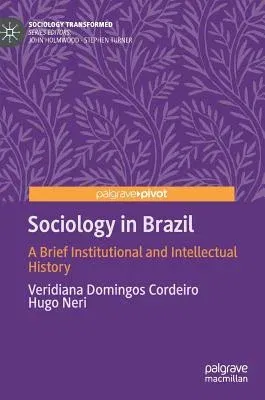Veridiana Domingos Cordeiro
(Author)Sociology in Brazil: A Brief Institutional and Intellectual History (2019)Hardcover - 2019, 11 April 2019

Qty
1
Turbo
Ships in 2 - 3 days
In Stock
Free Delivery
Cash on Delivery
15 Days
Free Returns
Secure Checkout

Part of Series
Sociology Transformed
Print Length
111 pages
Language
English
Publisher
Palgrave Pivot
Date Published
11 Apr 2019
ISBN-10
3030104389
ISBN-13
9783030104382
Description
Product Details
Book Edition:
2019
Book Format:
Hardcover
Country of Origin:
NL
Date Published:
11 April 2019
Dimensions:
21.01 x
14.81 x
0.97 cm
Genre:
Latin America
ISBN-10:
3030104389
ISBN-13:
9783030104382
Language:
English
Location:
Cham
Pages:
111
Publisher:
Series:
Weight:
303.91 gm